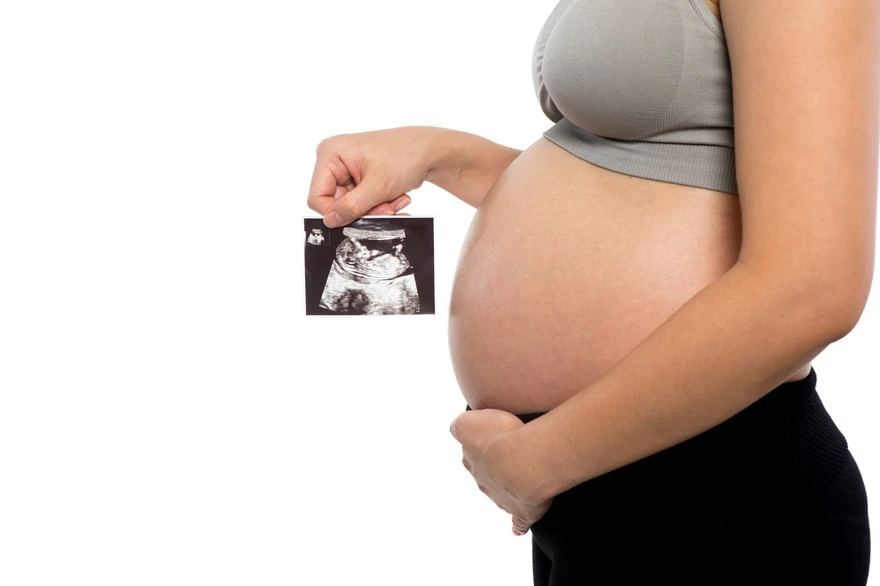Preventive Healthcare
Nuchal Translucency: What It Is and Why It Matters

Table of Contents
- What Is NT Scan?
- What Does the Nuchal Translucency Test For?
- When Is a NT Scan Done?
- Who Should Get a Nuchal Translucency Screening?
- How Is NT Scan Done?
- How Are the Results of A NT Scan Calculated?
- How Accurate Is the Nuchal Translucency Test?
- Are There Any Risks to The NT Scan?
- What Does an Abnormal Nuchal Translucency Test Mean?
- What Is the Normal Nuchal Translucency Measurement?
- Does An Abnormal Nuchal Translucency Scan Mean My Baby Has Down Syndrome?
- How Long Does NT Scan Take to Get The Results?
- Conclusion
What Is NT Scan?
The term ‘nuchal translucency’ refers to the fluid-filled area within the foetal tissue which is present at the back of your baby's neck. An ultrasound in the first trimester checks this fluid to see if there is a risk for certain genetic issues. Remember that an NT scan is just a screening. It can suggest if more tests are needed but does not confirm any conditions.
What Does the Nuchal Translucency Test For?
The nuchal translucency scan is a prenatal screening procedure performed during the first trimester of pregnancy, typically between 11 and 13 weeks. It measures the fluid-filled space at the back of the foetus's neck, known as nuchal translucency. A high NT scan measurement may suggest the presence of Down syndrome (Trisomy 21), Patau syndrome (Trisomy 13), Edwards syndrome (Trisomy 18), or congenital heart issue.
Along with a maternal blood test that checks specific pregnancy hormones, the nuchal translucency measurement helps assess the risk for certain genetic conditions. A thicker nuchal translucency measurement may indicate a higher risk of abnormalities, while a normal measurement indicates a lower risk. It's important to remember that the NT scan is a screening tool and not a definitive diagnosis. If the results show a higher risk, further tests like amniocentesis or chorionic villus sampling (CVS) may be suggested to confirm or rule out any conditions.
When Is a NT Scan Done?
An NT scan is typically done between the 11th and 13th weeks of pregnancy when the foetus measures between 45 and 84 millimeters from the crown (top of the head) to the rump (bottom of the torso). Beyond the 14th week, the fluid at the back of the baby's neck naturally gets absorbed, making it difficult to measure.
What Is a First-trimester Screening Test?
A first-trimester screening test, often called combined sequential screening, helps evaluate the risk of congenital conditions. It combines blood tests with an NT scan, offering more accurate results than the NT scan alone.
Who Should Get a Nuchal Translucency Screening?
A nuchal translucency screening is optional for all pregnant individuals. However, individuals over 35 or with a family history of genetic conditions may be advised to consider this screening. Healthcare providers recommend this scan for those who are between their 11th and 13th weeks of pregnancy.
How Is NT Scan Done?
A nuchal translucency scan involves using a handheld ultrasound device. The probe can be positioned either on your abdomen or inside your vagina, depending upon factors like:
- Gestational age
- Baby's position
- Mother's body shape
During the NT scan, the sonographer applies some gel to your abdomen and moves the ultrasound wand over it. The scan usually doesn’t cause any discomfort. If a transvaginal probe is needed, you will receive clear instructions beforehand.
How Are the Results of A NT Scan Calculated?
The results of a nuchal translucency procedure is calculated by measuring the thickness of the fluid-filled space at the back of the foetus's neck, and is usually performed between 11 and 13 weeks of pregnancy. The measurement is further compared to an established nuchal scan normal range value, which generally indicates a normal NT measurement is under 3.0 millimeters.
If the NT measurement falls within this nuchal translucency normal range, it suggests a lower risk for chromosomal abnormalities, such as Down syndrome. Conversely, a thicker measurement may indicate a higher risk, prompting further evaluation.
To improve the accuracy, the NT measurement is often combined with maternal blood tests that check hormone levels, such as free beta-human chorionic gonadotropin and pregnancy-associated plasma protein-A. This combined approach provides a more comprehensive risk assessment for genetic conditions.
The results are presented as probabilities, indicating the likelihood of abnormalities. For example, 1 in 1000 means low risk, while 1 in 150 means higher risk, which may lead to further testing. The nuchal scan normal range can vary slightly on the gestational age, usually between 1.8 and 2.35 mm for the 95th percentile. Using these population-specific reference ranges can optimise screening results by reducing false positive cases.
How Accurate Is the Nuchal Translucency Test?
The nuchal translucency procedure is not an outright diagnostic tool, but it’s a risk assessment measure. When performed between 11 and 13 weeks of gestation, the NT scan alone can detect approximately 75-80% of Down syndrome cases in foetuses of mothers aged 35 and older.
However, when combined with a blood test as part of a first-trimester screening, this accuracy increases to about 85%. This combined test looks at maternal age, hormone levels in the mother's blood, and the nuchal translucency measurement to provide a better overall risk assessment.
Being aware of these numbers can help you understand the nuchal scan normal range and interpret your results with more precision and less anxiety.
Are There Any Risks to The NT Scan?
The great news about a nuchal translucency scan is that it poses no direct harm to either the mother or the baby. The procedure involves a standard, non-invasive, and painless ultrasound that doesn’t involve any radiation exposure or needles, ensuring complete safety with no risk of miscarriage.
However, what could potentially be stressful for parents-to-be are the results, specifically those indicating high-risk. It’s important to remember that an abnormal result doesn’t confirm a genetic disorder but it simply indicates an increased risk for one.
What Does an Abnormal Nuchal Translucency Test Mean?
A thicker nuchal area identified during a NT scan directly correlates with higher chances of chromosomal abnormalities in the foetus. Essentially, if your result falls outside nuchal scan normal range, it denotes 'high risk'.
However, before panic sets in, it's important to remember that 'high risk' isn't a diagnosis. For example, among 100 women with a high-risk result, only about 5 would have babies with a chromosomal disorder. An abnormal test result can simply indicate the need for further diagnostic tests, such as Chorionic Villus Sampling (CVS) or Amniocentesis.
Additionally, factors like maternal age and family history can influence how results are interpreted. It’s important to consult with a healthcare professional to understand a implications of an abnormal NT scan and to discuss potential follow-up testing options.
Early detection helps with planning and managing any risks, making sure that both the mother and baby get the right care and support during the pregnancy.
What Is the Normal Nuchal Translucency Measurement?
Knowing what’s normal can help you understand your nuchal translucency scan results. The thickness of the nuchal fluid is usually considered normal if it measures less than 3.5 millimeters during weeks 11 to 13 of pregnancy.
It's important to note that as the foetus grows week by week, and so does the nuchal translucency. Hence, your healthcare provider will consider both the NT measurement and gestational age to determine if it lies within the nuchal scan normal range.
Does An Abnormal Nuchal Translucency Scan Mean My Baby Has Down Syndrome?
A common concern for parents is whether an abnormal NT scan means their baby has Down syndrome. It’s important to clarify that while a higher NT measurement might suggest an elevated risk Down syndrome, it does not confirm the condition. Further testing is needed to make a diagnosis.
Down syndrome occurs in about 1 in every 700 pregnancies. If your NT scan indicates an increased risk, further diagnostic tests can be done for confirmation. It's also important to note that about half of the babies with Down syndrome have a normal NT measurement.
How Long Does NT Scan Take to Get The Results?
The NT scan typically takes between 20 to 40 minutes. However, If conducted as a part of a first-trimester screening, it will be combined with blood test results. While an ultrasound findings may be discussed right after the scan, complete results usually take about a week or two to arrive.
Conclusion
Knowledge is one of the most empowering tools during pregnancy. Understanding what nuchal translucency is, its significance, accuracy, and the meaning of different results can help you make informed decisions and navigate your pregnancy journey with confidence.
At Metropolis Healthcare, we understand that every mother-to-be wants the best for her baby. Our qualified team ensures accurate pathology testing and health check-up services right at your doorstep. When it comes to prioritising your health and that of your unborn child, every step counts.


























